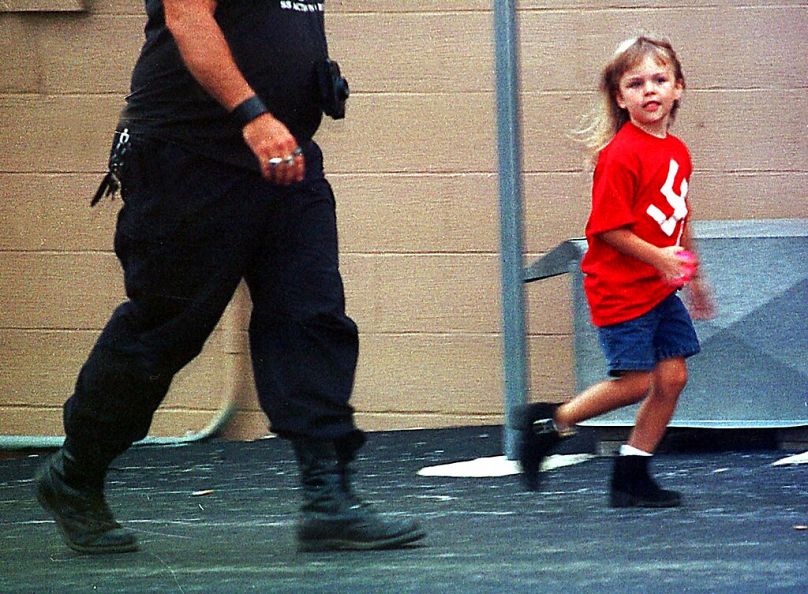Hammerskins Germany are a chapter of an ultra-racist organisation that began in the US more than 30 years ago.
Germany has banned an extremist group that spreads "racial theory based on Nazi ideology", the Interior Minister announced on Tuesday.
 ADVERTISEMENT
ADVERTISEMENT
 ADVERTISEMENT
ADVERTISEMENT
Searches were launched on Tuesday in 10 regions of the country, targeting 28 apartments belonging to members of the "Hammerskins Germany" organisation, according to a ministry press release.
The ban also targets regional sections and the sub-organisation "Crew 38", on the basis of the country's association law, which prohibits organised activity in opposition to the German constitution.
Germany is striking "a hard blow against organised right-wing extremism", said Interior Minister Nancy Faeser in a statement.
"We are putting an end to the inhumane activities of an internationally active neo-Nazi association in Germany", she added.
This is the 20th ban imposed by the Ministry of the Interior on a far-right organisation in Germany, the statement said.
"Hammerskins Germany" is an offshoot of the "Hammerskins Nation" movement founded in the US in 1988, at a time when white supremacist, white nationalist and neo-Nazi movements were cropping up and spreading across the country.
The Southern Poverty Law Centre, the US's leading monitor of hate groups, reported in 1999 that the Hammerskins had "emerged as a harder, more disciplined international group" than the local skinhead gang it originally was.
It was known for its stringent recruitment process, its ambitious and clearly articulated plans for racist political violence, and "viable chapters" spanning "Australia, the Czech Republic, France, Germany, Great Britain, the Netherlands, New Zealand, Poland, Serbia, Slovenia and Russia".
Within a few years, it seemed the Hammerskins had passed its peak. As the American neo-Nazi grassroots began to grow, it became harder for the group to exert central control, and its influence declined.
However, the surge in far-right activity across the US and Europe since the mid-2010s has seen numerous established groups and longtime extremists revive their operations with some success, with social media, encrypted messaging services and online payment platforms facilitating more efficient networking, recruitment and funding than they could have imagined during their heyday in the 1990s.
Today, the propagation of a racial theory based on Nazi ideology remains at the heart of the group's activities, which include live concerts, the distribution of audio recordings and the sale of anti-Semitic paraphernalia. Its members worldwide refer to themselves as "brothers" and consider themselves to be the elite of the far-right skinhead scene.
Its German branch has some 130 members, according to the Interior Ministry, and plays a "leading role on the extreme right-wing scene in Europe".
The country has elevated far-right terrorism to the top of the threat list after several attacks, most notably an abortive attack on a synagogue in Halle, in the east of the country, in October 2019 and a racially-motivated attack in Hanau, near Frankfurt, in February, which left nine people dead.
At the end of last year, German authorities disrupted a major extremist plot to overthrow the federal government and install a right-wing minor aristocrat as the country's leader.
The coup attempt was to be spearheaded by the so-called Reichsbürger movement, which was estimated to have as many as 20,000 followers nostalgic for various bygone periods of German history. There are concerns that it and other right-wing groups have seen some success recruiting from the ranks of the police and the armed forces.















